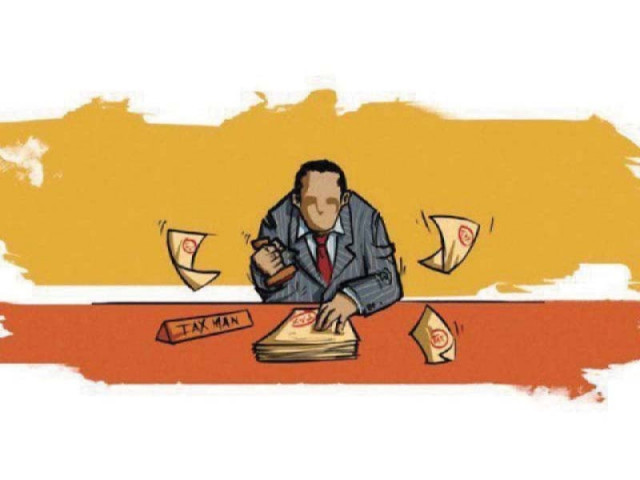Govt mulls imposing wealth tax on movable assets
May also increase customs duty, reduce age limit for car imports

CREATIVE COMMONS
In order to curb imports, the government also considered reducing the age limit of imported cars from three years to two years and of jeeps from five years to three years, said sources in the finance ministry.
Increasing the regulatory duty on over 900 items, including import of mobile phones, was also on the government’s list of new taxation measures.
Increase in federal excise duty on cigarettes is also on the cards, according to sources.
However, the most aggressive revenue measure, which is also highly inflationary, could be to further increase the additional customs duty from 2% to 3% on more than 5,200 tariff lines. This single measure can generate around Rs40 billion in additional taxes.
At present, the maximum standard customs duty is 20%. The increase will take the maximum applicable customs duty to 23% on the highest slab, which will also enhance sales tax collection at the import stage.
The last PML-N government imposed 2% additional customs duty to enhance revenue collection and it seems that the Pakistan Tehreek-e-Insaf (PTI) government is following in the footsteps of its political rival.
Finance Minister Asad Umar chaired a meeting on Saturday to review the new tax measures, but he struggled to find an innovative source of collecting additional taxes, said sources in the finance ministry.
As no out-of-the-box idea was presented, the meeting reviewed the possibility of further increasing the tax on cigarettes and reversing the tax cuts announced by the last government for individuals.
The government has also decided to appoint Hammad Azhar - PTI’s MNA from Lahore - as an aide on revenue.
Azhar joined the office on Saturday, although no official announcement was made about his portfolio. He is the son of former Punjab governor Mian Muhammad Azhar.
The mini-budget is being introduced to bring down the budget deficit from an anticipated 6% (or Rs2.3 trillion) of gross domestic product (GDP) to 5.3% (or Rs2 trillion).
In case the government manages to take more aggressive measures, the deficit can be further lowered to the already announced target of 4.9% of GDP, but chances for this are remote.
Sources said there was no major room to cut development expenditures that could be lowered to around Rs660 billion against the approved Public Sector Development Programme of Rs800 billion.
Sources in the finance ministry added that the government wanted to enhance revenue collection by at least 0.7% of GDP or Rs260 billion.
Its initial estimates showed that due to rupee depreciation against the US dollar, the revenue collection would rise by Rs110 billion or 0.4% of GDP. The government needed at least Rs100 billion in net revenues from additional measures if it wanted to achieve the collection target of Rs4.435 trillion, sources said.
Explaining Pakistan’s ‘greatest’ tax amnesty scheme
However, there was also a proposal to enhance the Federal Board of Revenue’s (FBR) target to Rs4.55 trillion through aggressive taxation measures, they added.
Income tax rates
Sources said the finance minister discussed the proposal of reversing the income tax relief to generate Rs75 billion in taxes.
The effective income tax exemption ceiling may be halved from the current Rs1.2-million annual income. Sources said another key proposal on the direct taxes side was the re-introduction of wealth tax after a gap of 15 years. However, the government’s hands are largely tied as the Constitution does not allow the federal government to impose tax on immovable assets.
The right to collect taxes on immovable property rests with provinces. Sources said because of this reason the government reviewed the possibility of imposing wealth tax only on movable assets, but this could limit its revenues to around Rs20 billion. Wealth tax in Pakistan was first introduced in 1963, but was abolished in 2003. In 2013, the PML-N government introduced an income support levy on net moveable assets of individuals, but this was also scrapped.
Customs duty
Sources said the major customs duty proposal was to increase the additional customs duty by 1% on 5,200 imported product lines. Besides generating about Rs40 billion in taxes, the measure could cut the import bill by around $1 billion, sources said.
There is also a proposal to raise regulatory duty on cellular phone import from 3% to 6% to get an extra Rs5 billion.
Since the bulk of mobile phones are imported from China, which are exempted from customs duty under a bilateral free trade agreement, the regulatory duty remains the only effective tool to curb imports from China.
In addition to that, there is also a proposal to impose additional regulatory duty of 8% on over 900 items.
Published in The Express Tribune, September 9th, 2018.
Like Business on Facebook, follow @TribuneBiz on Twitter to stay informed and join in the conversation.





1733130350-0/Untitled-design-(76)1733130350-0-208x130.webp)











COMMENTS
Comments are moderated and generally will be posted if they are on-topic and not abusive.
For more information, please see our Comments FAQ